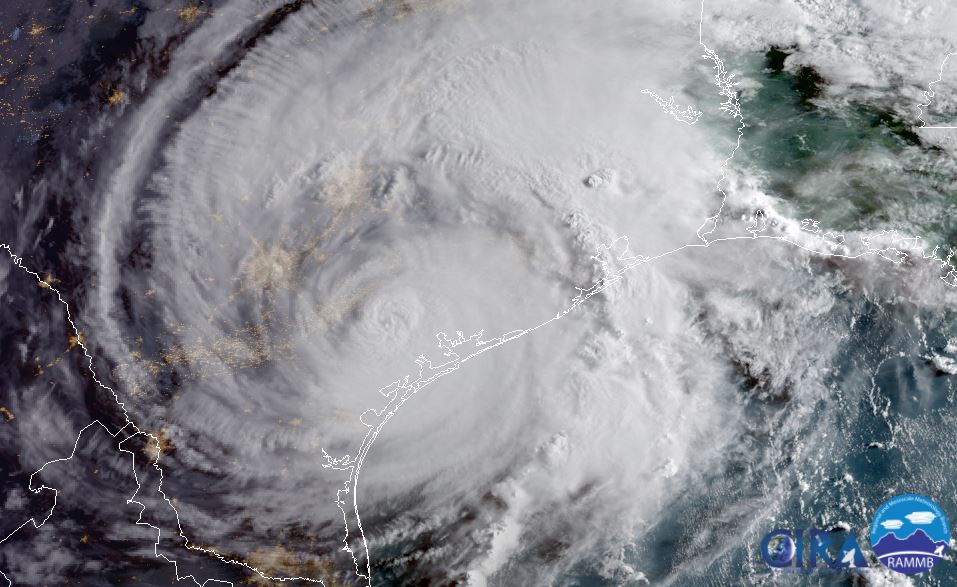Exposure to multiple disasters leaves people “worse for wear,” lowering mental health scores.
By Ashley Balzer, Science Writer (@AshleyBVigil)
Citation: Balzer, A., 2022, The Human Element: Study Shows Mental Health Worsens with Repeated Disasters, Temblor, http://doi.org/10.32858/temblor.239
Disaster response typically focuses on immediate, critical needs, such as search and rescue and supplying food and water. Long-term recovery efforts tend to target external issues, including environmental restoration and the rebuilding of physical structures. But a new study highlights the importance of an often-neglected impact of disasters: mental health.
It turns out, what doesn’t kill you doesn’t always make you stronger, said the study’s lead author, Garett Sansom, in a press release. After all, disasters aren’t like healthy physical exercise, which strengthens your body; these traumatic events can negatively impact mental health for decades. And despite the recent increase in climate-related catastrophes, until now, little was known about how repeated disasters might further compound this issue.

A threat to body and mind
To assess these effects, a team of scientists conducted a mental health survey of more than a thousand people living in the Houston metropolitan area. Because this Gulf Coast region is vulnerable to both natural and human-made hazards, residents are often subject to repeated catastrophes. The scientists found that those who had experienced a single disaster had lower mental health scores compared to the national average. Poor mental health is associated with lowered emotional and psychological well-being, which can lead to issues such as anxiety and depression.
The scores grew worse with each additional disaster the participants had faced. “Experiencing a disaster leaves people worse for the wear – primed for even worse mental health outcomes should they go through another,” says Leanne Fawkes, a doctoral candidate and graduate research assistant at Texas A&M University and co-author of the study. “We have a long way to go to increase community resilience following catastrophic events.”

These findings are especially poignant because climate change continues to make natural disasters more severe and more common. In a warmer climate, more water evaporates, which leads to more droughts and wildfires. It also means there’s more water vapor in the atmosphere to fuel storms.
Although the study focused on the Houston area, its implications likely extend to those living in other disaster-prone regions, according to Fawkes. Natural disasters affect an average of more than 200 million people worldwide each year.
Healing psychological scars
This research also highlights the importance of considering the human element in disaster recovery, beyond addressing immediate needs like saving lives and healing the wounded. “Mental health affects the trajectory of people’s lives,” says Fawkes. Therefore, measures to address long-term mental health impacts are especially important in areas where people are likely to experience repeated disasters.
Vincanne Adams, an anthropologist at the University of California San Francisco, further emphasizes that the stakes are high, saying, “As catastrophic events increase, chronic disaster syndrome could become widespread, resembling an intractable epidemic.” This syndrome, which is characterized by long-term negative psychological and physical effects, results from both disaster displacement and the trauma associated with a collapsed infrastructure. “When basic needs like healthcare services and food access are disrupted, a secondary disaster can emerge in the form of stress- and precarity-induced psychological and physical decline.”
Moving forward, Fawkes says she hopes more people will implement new strategies to heal psychological effects of disasters as part of a more holistic approach to disaster recovery. “Future studies could target the mental health impacts from specific disasters, such as earthquakes, to help community health officials tailor their intervention to the most relevant needs.”
References
Sansom, G. T., Thompson, C., Sansom, L., Fawkes, L., & Boerlin, E. (2022). Compounding impacts of hazard exposures on mental health in Houston, TX. Natural Hazards, 1-10. https://doi.org/10.1007/s11069-021-05158-x
- Earthquake science illuminates landslide behavior - June 13, 2025
- Destruction and Transformation: Lessons learned from the 2015 Gorkha, Nepal, earthquake - April 25, 2025
- Knock, knock, knocking on your door – the Julian earthquake in southern California issues reminder to be prepared - April 24, 2025
